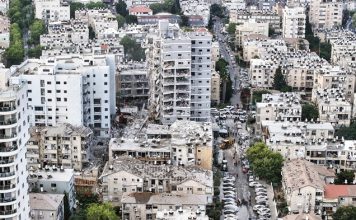By Kayhan Life Staff
Iranian Minister of Health Dr. Bahram Eynollahi recently issued a directive titled “Saving and Protecting Healthy Foetus,” banning prenatal screenings for pregnant women younger than 35 whose other children were born with no genetic disorder or Down syndrome.
The Health Ministry warned that violators could face prosecution.
Screening tests are offered at different stages of pregnancy.
For instance, screenings for Down syndrome (trisomy 21), Edwards syndrome (trisomy 18), and Patau syndrome (trisomy 13) are usually offered when a woman is 11 to 14 weeks pregnant (first trimester).
A screening to check a baby’s development is offered during a 20-week scan when the woman is around 18 to 21 weeks pregnant.
A developing fetus is an embryo from conception until the eighth week of development. After the eighth week, it is called a fetus until it is born.
The new Health Ministry’s guideline will restrict medical insurance coverage and pose a severe challenge to many families, especially the poor and the disadvantaged, who cannot afford the cost of screening tests.
Iran’s Revolutionary Guards Violated Women in Evin Prison, Former Political Prisoner Says
Restricting the sale of contraceptives, pregnancy tests, and prenatal screenings is part of Ayatollah Ali Khamenei’s scheme to promote marriage and large families, which poses financial and health challenges to underprivileged and low-income families who cannot afford medical insurance.
Many poor pregnant women cannot undergo screening tests to determine if their baby has any genetic disorder.
A statement released by the Youth Department of the Health Ministry on June 18 explained the specifics of the directive.
Under Article 53 of the “Youthful Population and Protection of the Family Law,” all medical universities, organizations, and institutions operating under the auspices of the Health Ministry must enforce the new rule.
Authorities argue that the new guideline would standardize prenatal screening for certain chromosomal conditions and abnormalities and ensure the fetus’s health and safety until birth.
Saber Jabbari, the Health Ministry’s Youth Department director, has said that the directive does not eliminate prenatal screening tests but “creates a targeted and standardized process” for detecting chromosomal abnormalities in pregnant women.
Jabbari argued that the new guideline would make screening tests more “voluntary” and “specialized,” which can be performed on requests only from the baby’s parents, an obstetrician, or a gynaecologist. No other physician can request a screening test.
“The health minister’s directive regarding chromosomal abnormalities aims to diagnose trisomy 13, 18, and 21. While fetuses with trisomy 13 and 18 have no chance of survival, ones with trisomy 21 have Down syndrome,” Jabbari noted.
It is noteworthy that screening tests have been an integral part of pregnancy and birth for a long time.
Under the new guideline, pregnant women younger than 35 years old whose other children were born with no genetic disorder or Down syndrome should not undergo a screening test.
However, women older than 35 whose other children were born with a genetic disorder or Down syndrome must undergo a screening test.
According to Jabbari, “facilitating, assisting and performing an abortion” is considered a crime, and “offenders will face serious charges.”
“Medical professionals who take part in an abortion procedure will lose their license, even if they perform it intentionally only once,” Jabbari warned.
It is noteworthy that in April 2005, the Majlis (Iranian Parliament) passed a law ratified by the Guardian Council in June of the same year, making abortion legal when the mother’s life is in danger and also in cases of fetal abnormalities.
In a report delivered earlier this month, Nada Al-Nashif, UN Deputy High Commissioner for Human Rights, on behalf of the UN Secretary-General Antonio Guterres, said: “The Islamic Republic’s Youthful Population and Protection of the Family Law, approved by the Guardian Council on Nov. 1, 2021, with detrimental consequences on the rights of men, women, and girls to reproductive health.”
“The law prohibits the free distribution of contraceptives in the public health care system, imposes a ban on voluntary sterilization for men and women, enacts a policy of restricting access to information on family planning, and imposes additional restrictions on abortion,” Report added.
Three days later, Iran’s High Council for Human Rights released a statement criticizing the UN human rights report.
“Article-10 of the Islamic Republic Constitution, and the Sixth Five-year Development Plan [2016-2021], protect families and reduce the risk of medical, psychological, social and cultural harm caused by abortion and its adverse impact on population growth,” the statement said.
“The largest part of this plan aims to improve livelihood and housing and support couples who cannot conceive and mothers who work or are homemakers,” the statement added. “It also aims to promote population growth and support the country’s active youth. It does not infringe on anyone’s privacy and pregnancy health concerns.”
The Youthful Population and Protection of the Family Law has allegedly resulted in many illegal abortions and babies being abandoned in the street and trash bins.
According to some reports, there are 400,000 abortions in Iran every year, 96 percent of which are performed illegally.
[aesop_image img=”https://kayhanlife.com/wp-content/uploads/2021/12/2021-12-14T000000Z_172528378_MT1NURPHO00049J3ZI_RTRMADP_3_HEALTH-CORONAVIRUS-IRAN-scaled.jpg” panorama=”off” credit=”Iranian young women walk along a street near a historical church in the city of Isfahan, 450 km (281 miles) south of Tehran. FILE PHOTO/REUTERS./” align=”center” lightbox=”on” captionsrc=”custom” captionposition=”left” revealfx=”off” overlay_revealfx=”off”]
Despite the health risk posed to women by unwanted pregnancies, the alarming rate of illegal abortion, and the financial challenges facing low-income families and young couples, Iranian state media continue to hail “The Youthful Population and Protection of the Family Law,” promoting population growth.
In an article titled “Ronaldo, a Role Model,” the Tehran-based Jame Jam daily, owned by the Islamic Republic of Iran Broadcasting (IRIB), urged young couples to follow Cristiano Ronaldo’s example and have a large family.
Mr. Ronaldo is a Portuguese professional footballer who plays as a forward for the Premier League club Manchester United. He and his partner, Georgina Rodriguez, had their fifth child recently.
“Portuguese professional footballer Cristiano Ronaldo’s fifth child is nearly two months old. The internet and social media pages are full of pictures of the couple and their five children,” the paper said.
“Ronaldo said he wanted to win seven Golden Balls before he retires and to have seven children. Ronaldo is not the only famous European with a large family,” the paper added.
The paper neglects to mention that Ronaldo and other famous sports personalities and celebrities in the entertainment industry have the financial means to support a large family.
However, most poor and disadvantaged people in Iran and other countries have difficulty making ends meet, let alone raising many children.
Iran Executes 26 People in 10 Days Amid Protests, Human Rights Expert Says
ANALYSIS: Much of Iran Is Threatened By Drought and Water Scarcity











